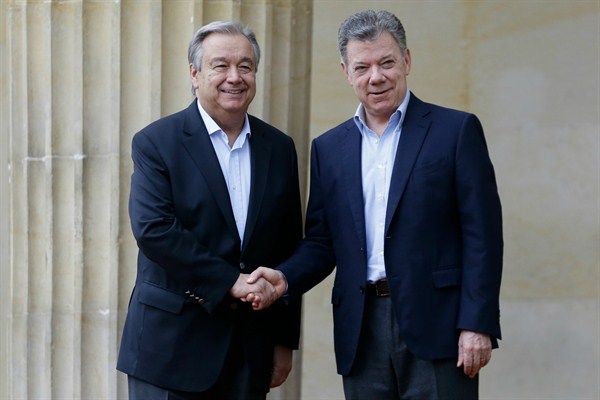Last weekend, United Nations Secretary-General Antonio Guterres traveled to Colombia to try to invigorate the 2016 peace agreement ending a relentless guerrilla insurgency that had become a painful relic of the Cold War. The longest-running armed conflict in the Western hemisphere pitted the state against the Marxist Revolutionary Armed Forces of Colombia, or FARC, the largest of two Marxist guerrilla groups that battled Colombian forces for more than half a century.
But in contrast to the international acclaim and optimism that greeted the peace deal, which culminated in Colombian President Juan Manuel Santos receiving the 2016 Nobel Peace Prize, Guterres’ visit unfolded under a cloud of concern.
Only hours before Guterres arrived in Bogota, his special representative for Colombia, Jean Arnault, had briefed the U.N. Security Council, informing its members that rebel attacks against Colombia’s economic infrastructure had just resumed. The attacks were carried out by the remaining guerilla group, the National Liberation Army, or ELN.

